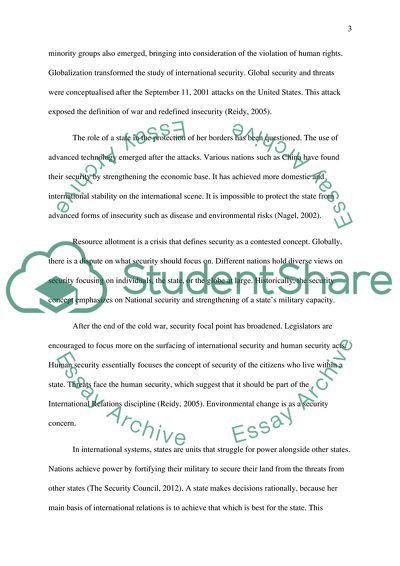Cite this document
(Controversy Surrounding Security Essay Example | Topics and Well Written Essays - 2352 words, n.d.)
Controversy Surrounding Security Essay Example | Topics and Well Written Essays - 2352 words. Retrieved from https://studentshare.org/military/1864455-apossecurity-is-a-contested-conceptapos-discussapos
Controversy Surrounding Security Essay Example | Topics and Well Written Essays - 2352 words. Retrieved from https://studentshare.org/military/1864455-apossecurity-is-a-contested-conceptapos-discussapos
(Controversy Surrounding Security Essay Example | Topics and Well Written Essays - 2352 Words)
Controversy Surrounding Security Essay Example | Topics and Well Written Essays - 2352 Words. https://studentshare.org/military/1864455-apossecurity-is-a-contested-conceptapos-discussapos.
Controversy Surrounding Security Essay Example | Topics and Well Written Essays - 2352 Words. https://studentshare.org/military/1864455-apossecurity-is-a-contested-conceptapos-discussapos.
“Controversy Surrounding Security Essay Example | Topics and Well Written Essays - 2352 Words”, n.d. https://studentshare.org/military/1864455-apossecurity-is-a-contested-conceptapos-discussapos.


